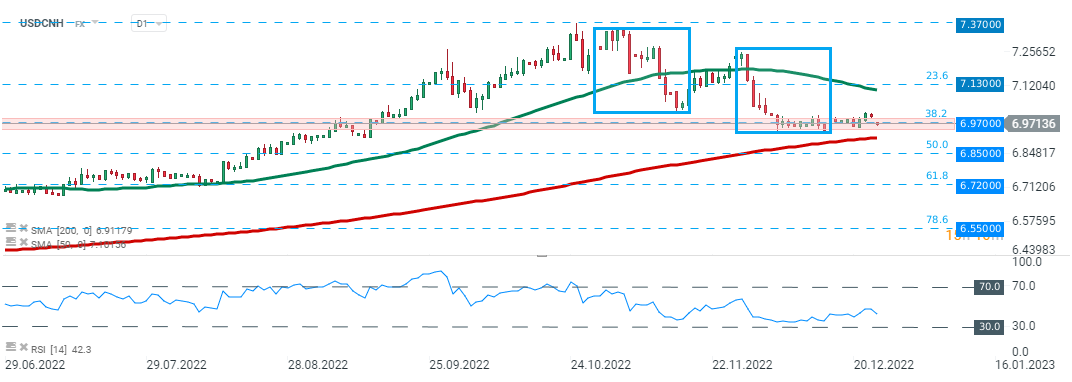Chinese currency strengthened on Tuesday after Beijing announced that it would drop Covid-19 isolation measures for inbound travelers starting in early January, raising hopes for a wider economic reopening. Health authorities also said that China’s Covid management will be lowered to the less strict Category B from the current top-level Category A. These news overshadowed recent data, which showed industrial profits in China dropped 3.6% during the first 11 months of the year to 7.7 trillion yuan, accelerating from a 3% decline in the January-October period. China’s economic growth was just 3% in the first three quarters of 2022 and is expected to remain around this level for the full year, which is one of the poorest performances in almost half a century, according to Reuters.
From technical point of view, the pair launched today's session with a massive bearish price gap and is currently trading around major support at 6.97, which is marked with lower limit of the 1:1 structure and 38.2% Fibonacci retracement of the last upward wave. If sellers manage to uphold current momentum and break below 200 SMA (red line), downward move may deepen towards next support at 6.85. On the other hand, if bulls manage to halt declines around 6.97, then another upward impulse towards recent highs at 7.37 may be launched.
 USDCNH, D1 interval. Source: xStation5
USDCNH, D1 interval. Source: xStation5
Chart of the day: EURUSD under pressure after PMI data! 📉
BoJ maintains rates despite hawkish shift in outlook. What next for the USDJPY?
Morning wrap (23.01.2026)
BREAKING: EURUSD reacts 🗽US jobless claims lower than expected


